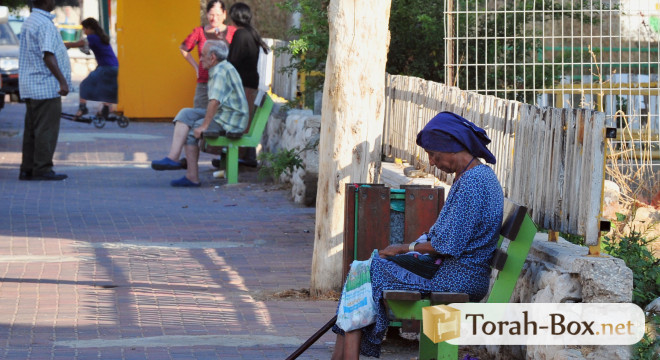
Passover
Passover: a "time of freedom" also for the needy!
In the Shulchan Aruch, Rabbi Moshe Isserles reports, regarding the month of Nissan: "There is a custom to purchase wheat and then distribute it to the poor so that they can have something to eat during Passover."
In addition, it is reported that there was a custom in some communities to turn to the wealthy individuals of the community to collect the Kimcha D'Pischa fund; if the individual concerned refused to give for Kimcha D'Pischa, claiming he had no money, he was then retorted: "Take Kimcha D'Pischa for you", which was a delicate way to make him understand that if he did not assume his role as a rich person, he should then assume that of a poor one…
The importance of this contribution is referred to in the Mishna Berura: "This is an ancient custom, back to the time of Gemara (Talmud), as mentioned in the Jerusalem Talmud, at the first chapter of the Baba Batra tractate: The inhabitants of the same city may compel each other to give this tax."
In its attempt to define the reasons for this ancient institution, the Mishna Berura gives us an extraordinary insight: "It is possible that the reason why our Sages legislated the needs of the poor on Passover more than for other holidays is that Passover is a time of freedom during which one sits and leans to the side around a festive table, each with his family, in an overflow of joy. Indeed, it would be an offense to Divine Honor for the poor to be hungry and thirsty at the time of the Seder. That is why we have the duty to provide them with the necessary food for the whole duration of the Passover holiday, so that they too may tell the Exodus from Egypt with joy."
Thus the very nature of Passover, consisting of freedom and end of slavery, implies that we bring our disadvantaged fellow Jews out of material deprivation, to allow them to live fully this outstanding experience, namely the liberation from slavery in Egypt, and thus by definition the liberation from all slavery. Indeed, the exile of Egypt is the very prototype of slavery in what it can be degrading for the man.
Eventually, raising Kim'ha de Piss'ha does not appear as a simple custom falling within the general framework of Tzedakah (charity), but as an institution of our Sages giving full meaning to the Passover holiday, which is freedom. However, freedom, whether individual or collective, cannot be conceived of without considering the needs of our indigent brothers.
In our Jewish conception, the poor are not seen as a load or a burden, but rather they are the cherished children of God, and their freedom and dignity depend on our own freedom and dignity...
- « The secret of Rav Pinkus: an extraordinary Passover eve
- The Seventh Day of Pesach, Segula for Parnassa and Marriage »
Torah-Box.net Account
To access the entire Torah-Box.net website, sign up for free in less than a minute.
Weekly Parsha
 Candle Lighting - New York
Candle Lighting - New York
Friday December 26th, 2025 at 16:16 *Shabbat ends at 17:22 *
change my location
* Times given as an indication, check the times of your community









